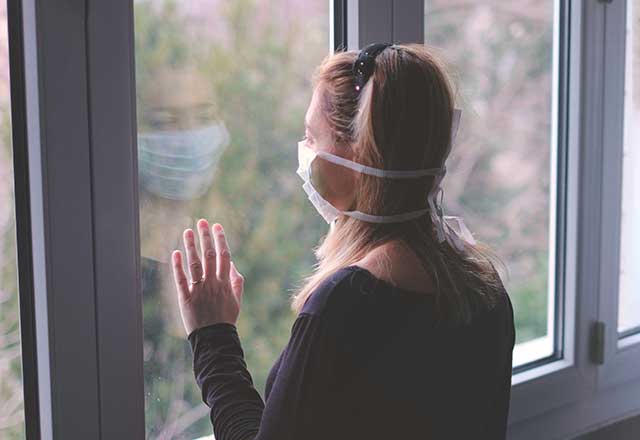Close your eyes and picture yourself back in March 2020. What do you see? Chances are, you are making a frazzled dash to the grocery store, stocking up on toilet paper. State closures are beginning, and some people have started wearing face masks. Life has seemingly changed overnight, and experts warn the pandemic might not end for another 18 months!
Now, come back to the present. Believe it or not, it has been 18 months. In that time, we have seen over 4.5 million deaths, three different vaccines and four COVID waves. We have quarantined — baking, gardening and sitting through more Zoom meetings than we thought possible. Here we are a year and a half later, luckier than many, but still worse for wear. Earlier this summer, we saw a glimpse of hope, but it soon slipped out of sight.
With the new surge in COVID cases has also come a surge in mental health problems. The setbacks with the variant have led to feelings of depression, anxiety, anger and hopelessness. The feelings are so common that there are already several names for this, ranging from “pandemic flux syndrome” to “delta whiplash.”
Here are some ways to cope with a new wave of old pandemic feelings:
Remember That Your Emotions Are Valid
You may be feeling a mix of emotions — frustration, anxiety, despair — and these are all valid. When you are feeling overwhelmed, try the countdown method to focus on your surroundings and the present. To do the countdown method, you look around yourself and note: five things you can see, four things you can touch, three things you can hear, two things you can smell and one thing you can taste.
Practice Self-Care
Self-care has led to several healthy rituals for many, and these are more important than ever. If you don’t know where to start, explore some ideas online. Starting a good self-care routine can involve something as simple as adding fruits and veggies to your diet or setting out to learn one fun fact a day.
Define Your Lowest Points in the Day
Figure out the time(s) you are most overwhelmed or down throughout the day. Add a relaxing or energizing activity you enjoy at these points. You can schedule in some daily meditation or take a brisk walk around the block.
Take a Break from the News
It’s easy to get caught up in the constant influx of information related to the pandemic. Try and limit your time by either checking the news once during the morning or using apps to limit your news access.
Remember That You Are Not Alone
With isolation, it’s easy to begin feeling like you’re going through these hard times by yourself. Make sure to stay in touch with family and friends. Keep an eye on current safety guidelines before making plans. If you and your loved ones are fully vaccinated and using appropriate precautions (such as masking in public indoor settings), an in-person meetup could be possible. For faraway friends and family, arrange a virtual movie night or social. Now’s the perfect time to start a virtual book club.
We are, unfortunately, living in some uncertain times again. However, that doesn’t mean that we are back to March 2020. Over half the country is now fully vaccinated, and the rates of hospitalizations and death are lower than they were previously. Although it seems that COVID is here to stay, that doesn’t mean we haven’t had some return to relative normalcy.
If you feel as though you are in a crisis, there are people who will help you at the National Suicide Prevention Lifeline, 1-800-273-8255.
[themify_hr]
Related Content
- Improving the Psychological Recovery of Health Care Workers After Disaster
- The COVID-19 Reprieve on Medical Student Debt
- Equal Access for Trainees in the Wake of COVID-19
- Fellowship Experience During a Pandemic
Want to read more from the Johns Hopkins School of Medicine? Subscribe to the Biomedical Odyssey blog and receive new posts directly in your inbox.

here we can find inspiration when we simy do not realize hope. thanks.
Pingback: Human flourishing: Could a philosophical concept impact health? | Biomedical Odyssey
Hello! Please accept my sincere gratitude for your insightful and heartfelt piece. Thank you to all of these medical professionals. Covid killed my father on 1-24-21, and he was on a ventilator for 9 days before he died. I witnessed heroes throughout the 10 days I spent in the ICU, and I will always be thankful. Sadly, my father didn't take Covid seriously enough, and so he caught it when dining out when he should have been at home. This was a terrible mistake. No one should be infected with the harmful virus any longer.
Comments are closed.